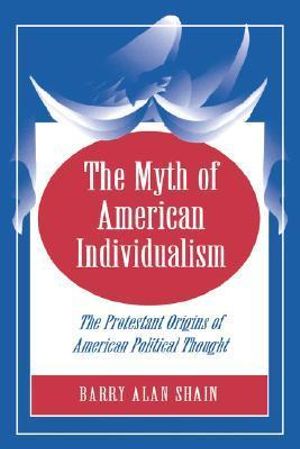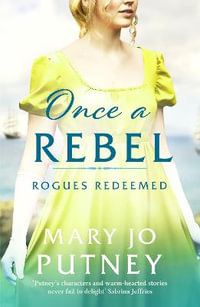
The Myth of American Individualism
The Protestant Origins of American Political Thought
By: Barry Alan Shain
Paperback | 4 November 1996
At a Glance
Paperback
RRP $67.99
$53.50
21%OFF
Aims to ship in 5 to 10 business days
When will this arrive by?
Enter delivery postcode to estimate
Sharpening the debate over the values that formed America's founding political philosophy, Barry Alan Shain challenges us to reconsider what early Americans meant when they used such basic political concepts as the public good, liberty, and slavery. We have too readily assumed, he argues, that eighteenth-century Americans understood these and other terms in an individualistic manner. However, by exploring how these core elements of their political thought were employed in Revolutionary-era sermons, public documents, newspaper editorials, and political pamphlets, Shain reveals a very different understanding--one based on a reformed Protestant communalism.
In this context, individual liberty was the freedom to order one's life in accord with the demanding ethical standards found in Scripture and confirmed by reason. This was in keeping with Americans' widespread acceptance of original sin and the related assumption that a well-lived life was only possible in a tightly knit, intrusive community made up of families, congregations, and local government bodies. Shain concludes that Revolutionary-era Americans defended a Protestant communal vision of human flourishing that stands in stark opposition to contemporary liberal individualism. This overlooked component of the American political inheritance, he further suggests, demands examination because it alters the historical ground upon which contemporary political alternatives often seek legitimation, and it facilitates our understanding of much of American history and of the foundational language still used in authoritative political documents.
Industry Reviews
ISBN: 9780691029122
ISBN-10: 0691029121
Published: 4th November 1996
Format: Paperback
Language: English
Number of Pages: 416
Audience: College, Tertiary and University
Publisher: Princeton University Press
Country of Publication: US
Dimensions (cm): 25.4 x 19.6 x 1.91
Weight (kg): 0.59
Shipping
| Standard Shipping | Express Shipping | |
|---|---|---|
| Metro postcodes: | $9.99 | $14.95 |
| Regional postcodes: | $9.99 | $14.95 |
| Rural postcodes: | $9.99 | $14.95 |
How to return your order
At Booktopia, we offer hassle-free returns in accordance with our returns policy. If you wish to return an item, please get in touch with Booktopia Customer Care.
Additional postage charges may be applicable.
Defective items
If there is a problem with any of the items received for your order then the Booktopia Customer Care team is ready to assist you.
For more info please visit our Help Centre.
You Can Find This Book In
This product is categorised by
- Non-FictionPhilosophySocial & Political Philosophy
- Non-FictionHistoryRegional & National HistoryHistory of the Americas
- Non-FictionPolitics & GovernmentPolitical Science & Theory
- Non-FictionSociety & CultureCultural Studies
- Non-FictionPolitics & GovernmentPolitical Ideologies & MovementsLiberalism & Centre Democratic Ideologies
- Non-FictionHistoryEarliest Times to Present DayModern History from 1700 to 1900
- Non-FictionHistoryMilitary HistoryAmerican War of Independence
























